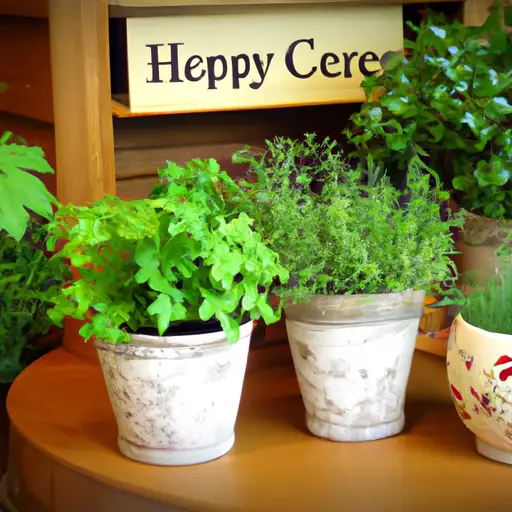Enjoy Fresh Herbs Year-Round with Indoor Container Gardening
Gardening is a delightful hobby that allows individuals to connect with nature, relax, and enjoy the rewards of their labor. However, many people face challenges when it comes to maintaining a garden all year long due to various reasons such as lack of outdoor space or harsh weather conditions. Fortunately, indoor container gardening provides a perfect solution for those who want to have fresh herbs year-round.
Indoor container gardening is a practice that involves growing plants in containers within the controlled environment of your home. This method enables you to create a mini garden indoors, no matter how small your living space may be. Growing herbs indoors not only brings the beauty and freshness of nature into your living space but also provides you with a continuous supply of aromatic and flavorful herbs that can enhance your cooking.
To get started with indoor container gardening, you need some basic supplies such as pots or containers, potting soil, herb plants or seeds, and proper lighting. Here are some tips to help you successfully cultivate herbs indoors.
1. Choose the Right Herbs:
When selecting which herbs to grow indoors, consider ones that are well-suited for indoor environments. Some popular choices include basil, parsley, mint, rosemary, thyme, and chives. These herbs are relatively easy to grow indoors and can thrive in containers.
2. Provide Adequate Lighting:
Proper lighting is crucial for the growth and development of indoor herbs. Most herbs require at least 6-8 hours of direct sunlight per day. If your home doesn’t receive enough natural light or you live in an area with limited sunlight during certain seasons, you can use artificial lighting sources such as fluorescent or LED lights to supplement the natural light.
3. Choose the Correct Container:
Selecting the right container is essential for successful indoor gardening. Ensure that your chosen pots or containers have drainage holes at the bottom to prevent waterlogging, which can lead to root rot. Additionally, make sure the containers are the appropriate size for the herbs’ root systems and that they provide enough space for growth.
4. Use Quality Potting Soil:
Herbs grown indoors rely solely on the potting soil for nutrients and moisture. Therefore, it is crucial to use high-quality potting soil that is well-draining and offers adequate aeration for the roots. Avoid using regular garden soil, as it may not provide the necessary drainage and could introduce pests or diseases into your indoor garden.
5. Water Regularly:
Proper watering is vital for healthy herb growth. Most herbs prefer slightly moist soil, so water them when the top inch of soil feels dry to the touch. Be careful not to overwater, as this can lead to root rot. Remember that different herbs have different watering needs, so research each herb’s specific requirements.
6. Maintain Ideal Temperature and Humidity:
Most indoor herbs thrive in temperatures between 60-70°F (15-21°C). Avoid placing your containers near drafts or heating vents as extreme temperature fluctuations can harm the plants. Additionally, maintaining a moderate humidity level of around 40-50% will help prevent your herbs from drying out.
7. Fertilize Occasionally:
Although potting soil provides essential nutrients, it’s a good idea to supplement with organic fertilizers every few months to ensure optimal growth and vitality of your indoor herbs. Look for slow-release fertilizers specifically formulated for potted plants.
8. Prune and Harvest Regularly:
Pruning your indoor herbs helps promote branching and bushier growth, ensuring healthier plants overall. Additionally, harvesting regularly encourages new growth and prevents your herbs from becoming leggy or overcrowded.
Indoor container gardening allows you to enjoy fresh herbs year-round while adding beauty and greenery to your living space. Apart from the convenience of having access to fresh ingredients at any time, cultivating an indoor herb garden can also be a therapeutic and rewarding experience that enhances your overall well-being.
In conclusion, with the right selection of herbs, proper lighting, suitable containers, good-quality soil, regular watering and fertilizing, and a little bit of care and attention, you can easily enjoy an abundant supply of fresh herbs throughout the year. So why wait? Start your indoor container garden today and embark on a delightful journey of growing your own herbs.














